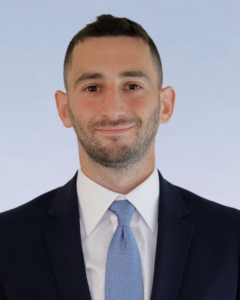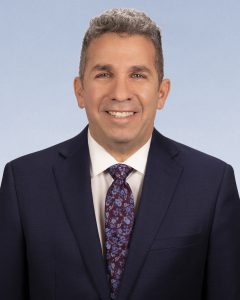Large Firm Service. Small Firm Attention.
SHARE
Ten Tips for New York Families in the Wake of the Coronavirus
Published March 13, 2020
By Marion Walsh, Esq., Littman Krooks LLP
We at Littman Krooks know how challenging this time is for families. New York, along with Washington State, leads the U.S. in cases of Coronavirus (COVID-19). The pandemic will strain public resources and services for all. We do not have all the answers, as current events are unfolding, but provide information and assurance for families.
We know that school closures are occurring everywhere, due to public health concerns. The New York State Department of Education (NYSED), together with the New York State Department of Health (NYSDOH) on March 9, 2020, issued School Guidance to public school districts for planning. In addition, the CDC, on March 12 2020, issued interim CDC School Guidance to school districts on closures. Some private schools or school districts will have to close for a certain period and many will consider providing distance learning.
Impact on Students with Disabilities
COVID-19 and the disruptions and school closure will affect all families and cause stress and interruptions. Yet the pandemic and closures will inevitably have a disproportionate impact on students with fragile health conditions and students with disabilities. The US Department of Education has issued USDOE Guidance for help with IEP services. Federal and state law do require that students with disabilities continue to receive a free appropriate public education. You will need to work with your child’s providers and with your school district to ensure your child receives appropriate services and support. However, keep in mind that the USDOE Guidance states that if a school district closes its schools to slow or stop the spread of COVID-19, and does not provide any educational services to the general student population, then the district would not be required to provide services to students with disabilities during that same period of time, although in some circumstances, compensatory services may be needed. As most New York School Districts will endeavor to provide some kind of student distance learning however, the school districts that do this must ensure appropriate and accessible services for students with disabilities.
We have compiled an action/information plan for all families with special attention to families of children or teens with disabilities or students with fragile physical or mental health conditions:
Basic Tips
- Ensure that you keep your child calm and reassured. You can review basic Health-Crisis Guidance from the National Association of School Psychologists for how to speak to children and reassure them. Remember that your children will react to and follow both your verbal and nonverbal reactions. Your statements about COVID-19, current prevention efforts, and related events can either increase or decrease your children’s anxiety. Remind your children that you and the adults at their school are there to keep them safe and healthy. This NPR comic video may be helpful to explain the virus to students.
- Review and Follow Basic Hygiene. Review and re-enforce the importance of hand washing and important hygiene protocol with your child. Students with intellectual disabilities may need help and reinforcement. The CDC has provided information on how hand washing can be a family activity.
- Keep as much structure at home if possible. To the extent possible, maintain a sense of normalcy in your home while keeping expectations reasonable. Parents can ask teachers for additional homework that parents can use to ensure that the student is being academically challenged or receiving consistent academic material. However, do not push children or teens if they seem overwhelmed. While stressful and difficult, this can be a chance for family time and togetherness. The closings and limited activities disrupt our routine but may give us a chance to enjoy some of the basics at home such as family game nights, conversation, good books. Each family has its unique structure and idiosyncrasies and to the extent you can, try to figure out for your family a path to come out of this stronger and more united.
Parent Support
- Seek Flexibility with Employer if Needed. If you work outside the home and are the primary caregiver for your child, you should seek flexibility with your employer and ask about the ability to work remotely or to take a leave of absence. The Family Medical Leave Act, in general, protects employees in workplaces with 50 employees or more and allows unpaid leave of absence to care for family members, for up to 12 weeks, without penalty.
- Rely on Virtual Support Groups. Parents can derive help and support from other parents in similar situations. Reach out via social media to find support groups with similar issues to ones you are facing. A virtual community of other parents, while not a substitute for person-to-person interaction, can help you locate resources and share experience on certain issues.
Student Services Options
- Obtain Medical Documentation for Student’s Unique Needs. If schools remain open, do not assume that your school district will automatically grant requests home bound instruction or other services as you may need current documentation. If your child is medically fragile or immuno-suppressed, obtain a letter from your child’s doctor and submit it to your school district to ask that home instruction, provided by the school district, begin as soon as possible. For students who cannot attend school and have medical documentation, New York Education Law requires that home bound instruction must be available for students who reside in the district if they require it. For children with disabilities who are absent for an extended period of time because of a COVID-19 infection when the school remains open, according to USDOE Guidance, then for each child, the IEP Team must determine whether the child is available for instruction and could benefit from home bound services such as online or virtual instruction, instructional telephone calls, and other curriculum-based instructional activities, to the extent available.
- Review Options for Online or Virtual Services for Your Child. Public safety protocols may limit the ability of providers or health care workers to work directly with students. For services, such as physical therapy or occupational therapy, it is not possible to obtain these services virtually. However, other services, such as home instruction or, in some circumstances, counseling, may be appropriate remotely or virtually.
- Document Missed Services. If needed and possible, you should see if providers will come to your home to provide services. If a child does not receive services during a closure, a child’s IEP team (or appropriate personnel under Section 504) must make an individualized determination whether and to what extent compensatory services may be needed, consistent with applicable requirements, including to make up for any skills that may have been lost. For any school closures or interruptions in services, document any services your child has missed and keep records and documentation of any regression. Ask the school district to provide related make up services.
- Understand Option of Home Schooling. Home schooling is different than home bound instruction and if you are worried about your child’s health, you may consider home-schooling. New York State Home Schooling Guidance explains that parents must file for an Individualized Home Instruction Plan New York. Home-schooled students, like students parentally placed in private school, are eligible for certain District of Location services, including related services, through an IESP. Here are other resources: Families Unschooling In New York; New York Home Educators’ Network
If Quarantined.
- Review Guidance if under Voluntary or Mandated Quarantine or Containment. Families must review Containment Guidance. Keep in mind that persons under mandatory isolation or mandatory quarantine can walk outside their house on their own property, but they must not come within six feet of neighbors or other members of the public. The Containment Guidance notes that families may need assistance with many basic necessities as well as mental health or social needs and supplies, but does not give tips on how to get this assistance.
The COVID-19 situation is evolving and new protocol may be available and required. The above tips do not constitute legal advice or any type of medical advice. Consult with your child’s doctors or providers for information on health protections for your child. If you believe that your school district is not appropriately serving your child, it is wise to consult with an attorney who specializes in education law. We at Littman Krooks are here to answer any questions, as well. Our office will be functioning through the outbreak—whether virtually or in-person– and please reach out to any of us.
Please remember that, In the past two decades, we have gone through 9/11, the tragedies and echoing repercussions of Sandy Hook and Parkland, hurricanes and other disasters as well as other defining moments. We will persevere through this as well. We have learned that a positive, calm, rational and proactive response to disasters and fears can create resilience for all of us, including our children and help build a stronger society. For your children, try not to succumb to fear, anger, and confusion, but work to be a light to others to lead them through.
Learn more about elder law, estate planning and special needs planning at http://www.elderlawnewyork.com & www.littmankrooks.com. Have questions about this article? Contact us.
Was this article of interest to you? If so, please LIKE our Facebook Page by clicking here.
Categories
Recent Posts
Explore In-Depth

Corporate & Securities

Elder Law & Estate Planning

Special Needs Planning

Special Education Advocacy


















